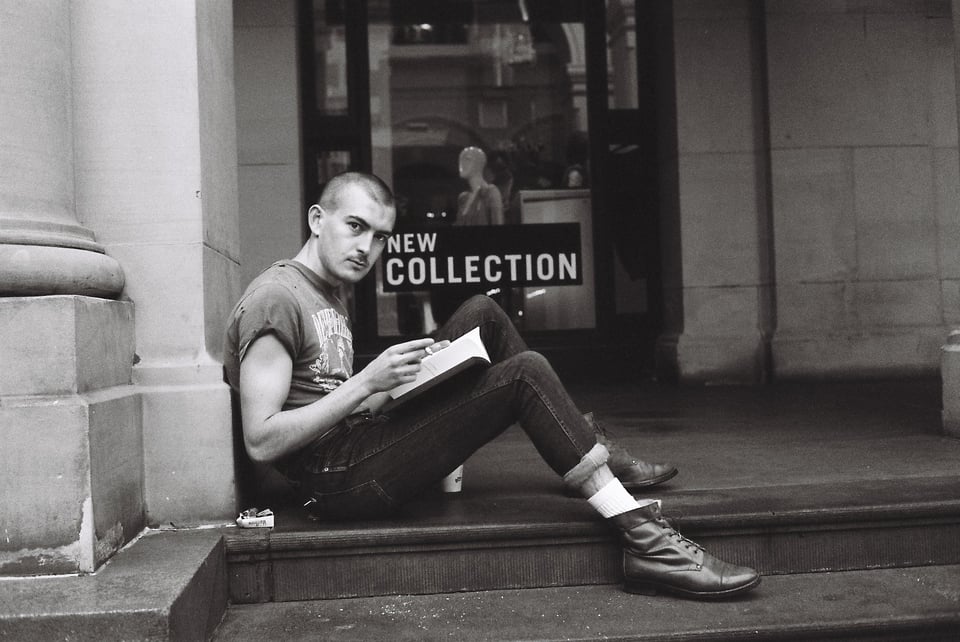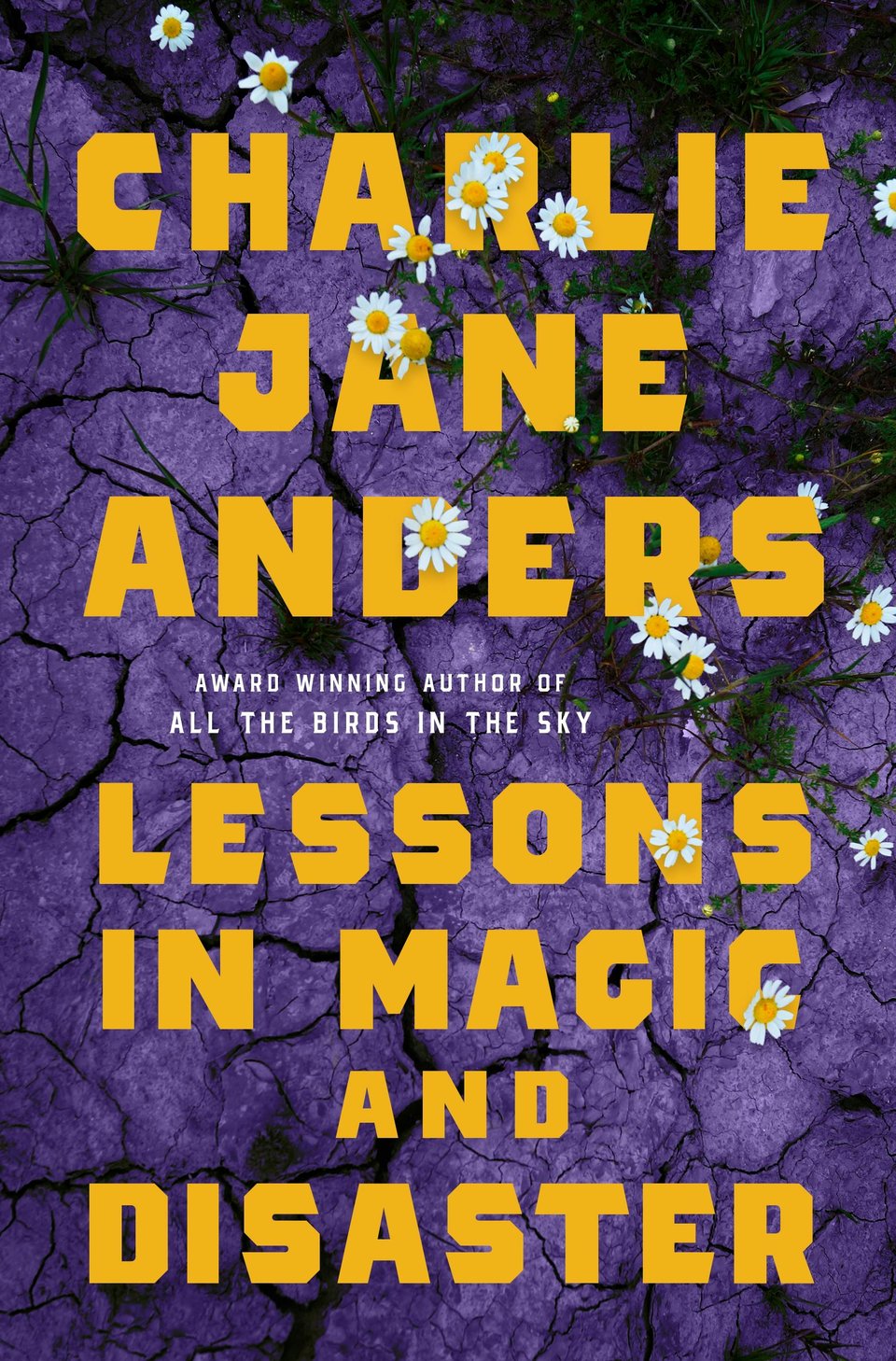Please be a book hipster!
This is a free newsletter! If you would like to support me — and give your future self a gift of a lovely read — please do pre-order my upcoming adult novel Lessons in Magic and Disaster. It’s about a witch who teaches her grief-stricken mother how to do magic, and it’s also about the brilliant unsung women novelists of the mid-eighteenth century. I poured my actual heart into this one, y’all. You can pre-order it anywhere books are sold, but you can also get a signed, personalized, doodled copy from Green Apple.
Also, please scroll down to the bottom of this email to see a full size, utterly gorgeous look at the breathtakingly wondrous cover of Lessons in Magic and Disaster!
Please be a book hipster!
I'm sure you're familiar with the hipster stereotype: someone who is only into obscure indie stuff, who prefers some grunge-metal band from Lapland to Taylor Swift. A person who derives all their cred from liking stuff that hardly anyone else likes.
Side note: when I was in high school I scored a mostly complete set of Chicago vinyl for $0.25 a record — including the double LPs with the endless jam sessions. One of my high-school classmates looked at my haul and said, "I only like Chicago's early stuff, before they sold out." We all mercilessly mocked this person, because Chicago's earlier stuff is exactly the same as their later stuff: beautifully corny and cheesy AF.

In any case, we all dunk on hipsters for good reason. There's just a certain smugness about loving the most obscure stuff that grates after a bit. And yet, today I am issuing a plea to you: Please be a book hipster!
And by that I mean: Please go out of your way to hunt down the books that hardly anyone else is talking about, the gems that have been passed over in favor of the handful of books that usually get celebrated.
One thing that bugs me about the book world is the winner-takes-all mentality. The same way that in television, you'll see endless chatter about The Bear but only a relatively small amount of discussion of We Are Lady Parts, I feel like a certain number of books are getting most of the love at any given time.
This is something I've thought about for a long time, and I feel like it's become a bigger problem over the past twenty years. But I've become especially sensitized the last couple years, since I've been reviewing science fiction and fantasy books for the Washington Post. That gig makes me hyper-aware of which books are at the center of the conversation in the book world. I find myself casting a pretty wide net, to consider as many books as possible for my column because I know there's a lot of great stuff being published right now that deserves a mention in the Post.
And all too often, I feel like many of the books I love the most are getting relatively little attention elsewhere. Some of these books come from smaller presses or indie publishers, but a lot of them also come from the Big Five.
Here's where I acknowledge that oftentimes, if not usually, the books that are getting a ton of attention do, in fact, deserve to be celebrated. I'm not even remotely suggesting that inferior books are being celebrated while better books are being passed over, merely that we could gain from widening the circle.
I've personally been on both sides of this issue: I've been the flavor of the month, and I’ve also published books that fell through the cracks. Honestly, I didn’t love either of those experiences. Of course, I’d way rather get too much love than none at all, but it gets overwhelming to have your work under a magnifying glass, and the imposter syndrome gets overwhelming. You want to enjoy it while it lasts, but you also feel so much pressure to keep the party going as long as possible. Plus, it’s frustrating when you're lucky enough to have an “It” book, and you want to share the wealth with other authors, but publishing success doesn’t always translate to having a platform to lift others up beyond a certain amount. (That’s a major reason I’m so grateful for my platform at the Post.) And of course, it sucks to spend years writing a book and have it only sell like 1,000 copies, which is what happened to my first novel.
And the fact is that a “winner takes all” model is just bad for the book world in general. It's stifles innovation, it leads to more of a monoculture, it often further marginalizes voices that don’t come from the dominant group.
Even if you’re lucky enough to be the one member of a stigmatized group who gets singled out for stardom, it sucks to see the rest of your community toiling in obscurity. And it’s shitty to ask one person to speak for a whole group of people, who may have countless different perspectives on their marginalization.
Of course, the book world isn't a zero-sum game. There is not a fixed, finite number of readers, who can only read a certain number of books per year. As I wrote in my advice book Never Say You Can't Survive, your biggest competition isn't other authors — it's the dreaded reading slump. When a book does incredibly well, it will cause readers to go out and seek other similar books.
At the same time, though, this process of expanding the pool of readership and the canon of popular books can sometimes use some help. In order for readers who've just read the latest blockbuster book to find other books they might like, there need to be people shouting about those other books. We may even need to celebrate the aspects of those other books that distinguish them from the current “it” book, so they don't get lost in the shuffle or unfairly conferred compared to a book they didn't set out to imitate.
And that process that I wrote about recently, whereby a mega-popular book spawns a hot trend, does at times lead to work s that can feel a little bit derivative after a while. I saw this firsthand after Hunger Games, when I went hunting for more awesome YA books, and read some which honestly felt like a pale imitation of Suzanne Collins.

So when I say when I urge you to be a book hipster, this definitely includes a plea to look for books that are a bit different and don't necessarily play into the current hot trend. I love oddball books and I tend to hunt them down, and this has enriched my reading life considerably, because I've been blown away and surprised so many times by unexpected storytelling choices. I'm not just talking about bizarro literary experiments — though I do love those. There are also plenty of books without any literary trappings, which still manage to bust through some walls like the Kool-Aid Man and blaze a new trail.
When you look at the books that have broken out and launched a new trend or a feeding/reading frenzy, many of them in fact were oddball books that didn't resemble anything else that was being published at the time. Every author who publishes a book is purchasing a lottery ticket, but a book that defies expectations has the potential to launch something much bigger. Indeed, anytime you support a lesser-known book that flies in the face of expectations, you’re helping to make it somewhat more likely that a new sensation will emerge, thus bringing in tons of new readers and making the book world more healthy and vibrant.
It may sound counterintuitive for me to argue against having a handful of mega-successful “it” books, and then turning around and saying that weird unconventional books are our best boy chance at creating new “it” books. But again, I really don't think the “it” books are the problem — rather, it's the choice to focus on them to the exclusion of other worthy titles. And I'm going to close with a plea: every month in the Washington Post, I work super hard to single out books that I love, some of which seem to get relatively little attention elsewhere. If you have an account at the Post, please read my reviews and check out the books I've recommended, because I promised they will be worth your time.
Music I Love Right Now
I’ve been a fan of Thai singer Phum Viphurit since his song “Hello Anxiety,” which, ummm… addressed a lot of things that I was (and am) feeling. (That link goes to the music video, which is also great!) Last year, he released his first new album in years, The Greng Jai Piece, and it’s also pretty wonderful. “Greng Jai” is phrase in Thai culture that sort of refers to being considerate of others — but it has a flipside, meaning to be so self-effacing that you don’t advocate for yourself. (I’m summarizing what I’ve read online — please do your own research on this.) Anyway, once again, Phum Viphurit is singing breezy songs (in English) about anxiety, burnout, self-destruction, addiction and self-harm. It’s very therapy. At one point, he sings repeatedly, “You are everything to someone.” His music is a bit more lounge/soft rock than I’d normally like, but it has a sharp edge to it. Plus there’s a strong focus on virtuoso guitar-playing, as multiple styles of guitar layer on top of each other. It’s pretty gorgeous and also what I needed right now. I almost saw Phum Viphurit in concert back in 2019, but bailed because I was too busy — and I now regret that choice.
Podcasts I love right now
In addition to writing this newsletter, I also co-host an award-winning podcast called Our Opinions Are Correct with Annalee Newitz. Here are some podcasts that have rocked my world lately:
TransLash Media just brought back The Anti-Trans Hate Machine for a new season, and it’s essential listening.
Paris Marx is doing a miniseries about the issues with data centers in Tech Won’t Save Us. I’m learning so much.
My new favorite podcast overall is the Outside Scoop box office podcast, featuring four box-office pundits dishing about the movie industry and why so many movies fail.
I also really love In Bed With the Right, A Bit Fruity, Vibe Check, The Bugle and Tested.
Here’s that book cover!
Isn’t it so beautiful? Scroll back up for info on pre-orders…
